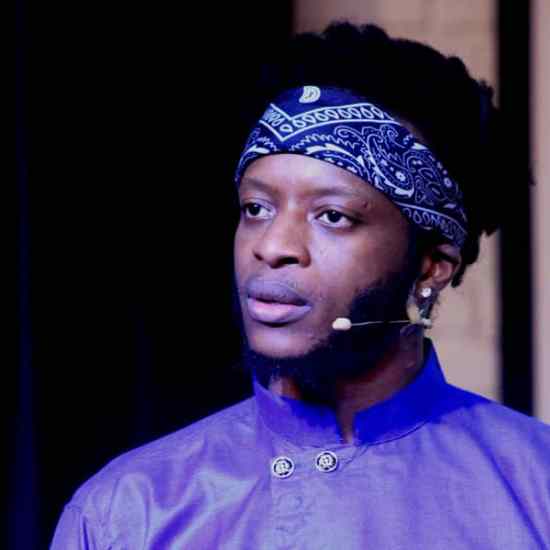
While Zimbabwe may have adopted a new constitution, the application of the law still mirrors the situation before the document was accepted. Waza blogger, Philani Amadeus Nyoni, explores the discrepancy between what is on paper, and how the law is applied.
In 2013, Zimbabweans went to a referendum to vote on a new constitution. The results were overwhelmingly in favour of discarding the one crafted at Lancaster House in 1979, when the country was transferred to the black majority after the liberation war. Yet, many laws have not been amended to match the new constitution, and this limits the impact of having a new national document.
One example is the draconian law that makes an illegal act of ‘undermining the authority of the President’. The wording is as vague as any oppressive law can be. I have three examples of its use, which all sound ludicrous in any country that purports to be democratic.
[su_quote]The wording is as vague as any oppressive law can be[/su_quote]
The insult law is an insult to democracy
A woman was once charged under this law for insulting someone with the phrase, “You are a goblin, like Mugabe”. In his ‘Sibathontisele’ exhibition, Bulawayo artist Owen Maseko showed artworks whose major theme was the Gukurahundi genocide, where government sponsored trops massacred people in parts of Matabeleland and the midlands in the mid-1980’s.
His exhibition depicted the president in a not so favourable light. Maseko was also charged with this law and thrown in jail within 24 hours. He is free now, but five years later his artworks remain under arrest.
The last example is that of Jabulani Sibanda, a war veteran leader who was about ten years old when the war ended. Last year when the First Lady was on a meteoric political rise, he made a comment which barred him from The Party’s (yes, that is an Orwellian pun) congress in December.
Officially, he was charged with ‘Undermining the authority of the president’ and thrown into the slammer for calling the first lady’s rise ‘a bedroom coup’.
In the bill of rights outlined in the new constitution, freedom of speech is guaranteed, although as the street knows, freedom after speech is not. If freedom of expression is guaranteed, what makes the president’s name or image so special?
[su_quote]freedom of speech is guaranteed, although as the street knows, freedom after speech is not.[/su_quote]
In the case of Jabulani Sibanda, the name was not even mentioned, yet he was charged with the same ridiculous law. Why hasn’t any lawyer pointed this out and demanded it should be scrapped? I am waiting for my day in court to tell the judge exactly how to fornicate with himself.
Untouchable president
Earlier this year, the Head of state and Government, Commander in Chief Of The Zimbabwean Defence Forces, First Secretary of ZANU(PF), Chancellor of all state universities, His excellency, Comrade…(yes, that is his official title) and oldest leader in the world fell, as he left a podium set up for him to address his supporters at the airport.
Social media went amok with memes, and I received more than a few myself; my favourite being this one which is a stark reminder of times gone past when opposition leaders would get assaulted and Mugabe would go on TV to unashamedly affirm that people get ‘bashed’ in his country. I am not even going to go into the case of Itai Dzamara, an activist who was kidnapped and is still missing this March.

There is also an audio-clip of Mugabe saying all those who were spreading the pictures of him on his knees or the memes will ‘be dealt with’.
Last week I walked past the market place I saw this disturbing sign:
Fear rules us
I was with a photographer; he was carrying his weapon, but he refused to shoot the signpost. He was afraid of what might happen if he took the picture: lose his camera, be assaulted by state agents (who might be lingering in the marketplace), get arrested…the list is endless.
His attitude infuriated me, yet I understood. Fear rules us and what is on paper is worlds apart from what actually happens.
A man refuses to take a photograph, though his safety is guaranteed by the law…out of fear of the law, yet he is supposed to be endorsing Mugabe as President for life, he is a Bulawayo Citizen after all, right?
I don’t care how ancient he is, and on a balance of probabilities his ‘life’ hereafter is quite short, but how can Bulawayo endorse Mugabe as President for life when the constitution clearly states in Chapter 5 that one man can only sit for two terms? And when was Bulawayo asked?
Was there a plebiscite? Not one I participated in, or was asked to.
Difference between paper and reality
The list or irregularities between what is on paper and what actually transpires is endless, and I suspect Zimbabwe is not the only country where what is written in the legal annuls (mind the pun) and what is practised, are worlds apart.
How does it happen in your country and most importantly, do you know the law?
Source: www.wazaonline.com










